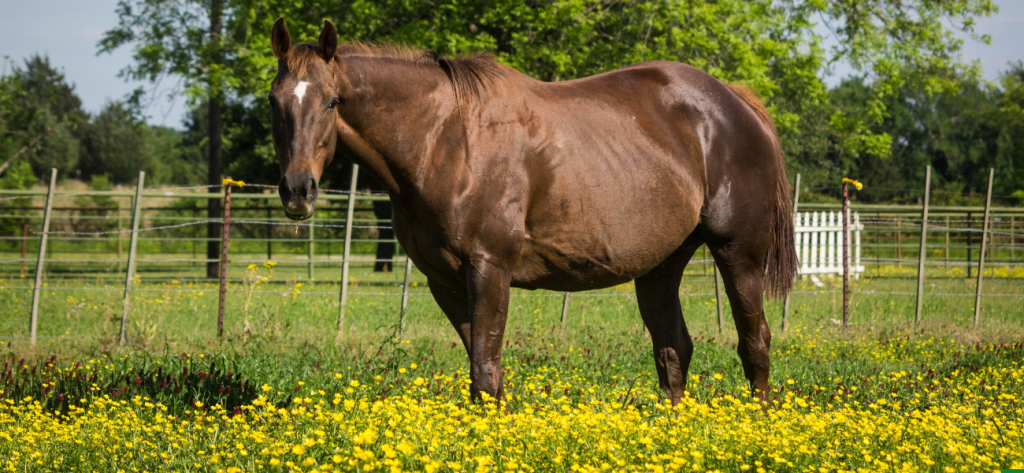Uncategorized
Foal Series: The Mares Transfer of Good Gut Bacteria to the Foal
In the last foal series blog we discussed translocation of bacteria from the gastrointestinal tract of the mother to the mammary gland and therefore to the milk of the mammary gland and the gastrointestinal tract of the newborn. This however is not the only source of “good” bacteria provided to the newborn.
The first exposure is likely to be the amniotic fluid that the foal is exposed to throughout gestation, followed by contact with mares vaginal flora as it passes through the birth canal, and then of course suckling of milk and contact with the environment including moms feces, pasture, etc.
The intestinal flora is critical to disease prevention. Not only with direct action against pathogens, however also development of immunity, maintaining foal functional barrier and direct action against toxins. Lactobacillus Reuteri also has regulatory effects on other intestinal microflora, antibodies, immune cells, cytokins, antibacterial and anti-inflammatory responses (5).
Lactobacillus Reuteri is beneficial for the treatment of human GI diseases. Administration of L. Reuteri significantly reduced crying and fussing times in breastfed infants with colic (1). L. Reuteri has been recommended as a therapy for human infants with colic (2) and for a treatment of diarrhea and constipation (3). L. Reuteri effectively colonized the gastrointestinal tract and shortened the duration of watery diarrhea associated with rotavirus. There was also a correlation to dose of L. Reuteri administered (4). Another study showed L. Reuteri to be efficious in the treatment of diarrhea reducing the frequency, duration and recrudescence of the disease (5)
Therefore, with the scientific based research regarding L.Reuteri and gastrointestinal disease and the frequency of gastrointestinal diseases in the newborn foal would it not be beneficial to ensure an adequate population of L. Reuteri present in the gastrointestinal tract. Boost the mares population of Lr in late gestation and the foals Lr throughout the high exposure and sensitivity to disease.
- Chau, Kim et al. “Probiotics for infantile colic: a randomized, double-blind, placebo-controlled trial investigating Lactobacillus reuteri DSM 17938.” The Journal of pediatricsvol. 166,1 (2015): 74-8. doi:10.1016/j.jpeds.2014.09.020 – https://pubmed.ncbi.nlm.nih.gov/25444531/
- Sung, Valerie et al. “Lactobacillus reuterito Treat Infant Colic: A Meta-analysis.” Pediatricsvol. 141,1 (2018): e20171811. doi:10.1542/peds.2017-1811 – https://pubmed.ncbi.nlm.nih.gov/29279326/
- Saviano, Angela et al. “Lactobacillus Reuteri DSM 17938 (Limosilactobacillus reuteri)in Diarrhea and Constipation: Two Sides of the Same Coin?.” Medicina (Kaunas, Lithuania)vol. 57,7 643. 23 Jun. 2021, doi:10.3390/medicina57070643 – https://pubmed.ncbi.nlm.nih.gov/34201542/
- Shornikova, A V et al. “Lactobacillus reuteri as a therapeutic agent in acute diarrhea in young children.” Journal of pediatric gastroenterology and nutritionvol. 24,4 (1997): 399-404. doi:10.1097/00005176-199704000-00008 – https://pubmed.ncbi.nlm.nih.gov/9144122/
- Francavilla, R et al. “Randomised clinical trial: Lactobacillus reuteri DSM 17938 vs. placebo in children with acute diarrhoea–a double-blind study.” Alimentary pharmacology & therapeuticsvol. 36,4 (2012): 363-9. doi:10.1111/j.1365-2036.2012.05180.x – https://pubmed.ncbi.nlm.nih.gov/22680836/
- Luo, Zichen et al. “Limosilactobacillus reuteriin immunomodulation: molecular mechanisms and potential applications.” Frontiers in immunologyvol. 14 1228754. 9 Aug. 2023, doi:10.3389/fimmu.2023.1228754 – https://pubmed.ncbi.nlm.nih.gov/37638038/

